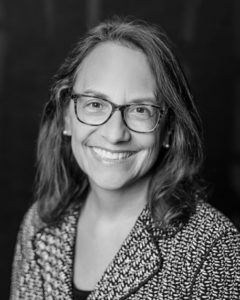With tens of thousands of gun deaths per year nationwide, it often feels like it’s just a matter of time before the wheel of tragedy stops close to home.
That happened this past week, when six people were killed early Sunday morning, just blocks from the California State Capitol and literally around the corner from CHA’s offices in Sacramento.
It is surreal to see the now-windowless restaurants where staff take lunch, the bits of glass that still litter the ground. It is one thing to read about tragedy, another to see vivid bloodstains on the sidewalks you pass when walking to work.
The American Public Health Association notes that gun violence is a leading cause of premature death in the U.S., killing more than 38,000 people and causing nearly 85,000 injuries each year. In California, gun violence takes thousands of lives each year and injures many more — the majority of whom turn to hospitals for life-saving care.
And like so many public health challenges, gun violence has a disproportionate impact on people of color. It’s similar to COVID-19, where Hispanic people represent a larger share of cases relative to their share of the population and Black people account for a higher share of deaths compared to their population.
With gun violence, Black Americans are 10 times more likely than white Americans to die from gun homicide; Hispanic Americans are twice as likely to die by gun homicide and four times as likely to be wounded by an assault with a gun as white people.
For hospitals whose daily work is spent healing the injured, gun violence is beyond frustrating. It feels different from diseases caused by genetics or lifestyle, or a virus like COVID-19, and its seeming randomness — especially in the case of mass shootings — calls all of us toward action.
There are many paths of action to consider — but perhaps the first step in any of this, during National Public Health Week this year — is a sincere and public recognition that more can be done to prevent death and injury from gun violence.
Work is already underway at UCLA, where UCLA Health researchers have begun studying gun ownership and attitudes among understudied Californians, with the goal of better understanding gun violence as a public health issue.
As we await the results of their work and continue to educate ourselves on this issue, the words of UCLA’s researcher, Michael Rodriguez, MD, MPH, a professor at the David Geffen School of Medicine at UCLA and the UCLA Fielding School of Public Health, ring true:
“Gun violence kills people. It also injures many more people and maims people and provides them with disabilities for life. These are health impacts,” Dr. Rodriguez said. “By recognizing that guns are causing these health impacts, we recognize that it’s a health problem. Once we recognize it as a health problem, we can think about it the way we do other health problems.”
